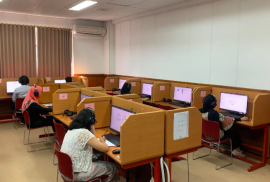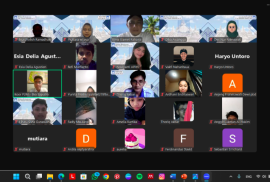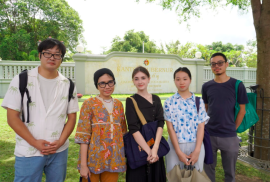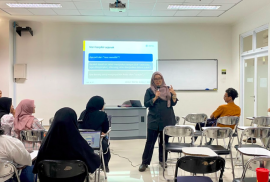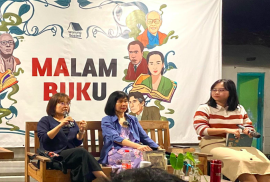Yogyakarta, 17 April 2025 – Pusat Bahasa of the Faculty of Cultural Sciences at Universitas Gadjah Mada (FIB UGM) partnered with the Indonesian International Education Foundation (IIEF) to successfully organize the TOEFL Digital On-Site test today. The test took place at FIB UGM, with ten participants arriving at the venue starting at 7:30 AM. The official test began at 8:00 AM.
The participants expressed enthusiasm for enhancing their English language skills, recognizing it as a crucial factor for thriving in the increasingly interconnected global landscape. The test employed digital methods, which not only ensured efficiency but also promoted eco-friendliness by significantly reducing paper use. This reflects UGM’s commitment to leveraging technology in providing high-quality education.
To guarantee a smooth execution of the test, the Language Center of FIB UGM and IIEF ensured that the facilities met international standards for TOEFL testing. The venue offered modern amenities and accessibility, while the organizers provided pre-test briefings to help participants perform confidently and without technical difficulties.
The event served as both an opportunity for individuals to evaluate their English proficiency and a strategic step toward realizing Indonesia’s vision of producing globally competitive human resources. Through its collaboration with IIEF, UGM demonstrated the importance of partnerships between educational institutions and related organizations in expanding access to quality education across the country.
This initiative also aligns with the Sustainable Development Goals (SDGs), particularly Goal 4, which emphasizes the need for inclusive and equitable quality education. By focusing on individual skill development, the program represents a tangible commitment by educational institutions to foster positive change on both local and global scales.
[Public Relation of Fellas FIB UGM, Sabik Hikami]

